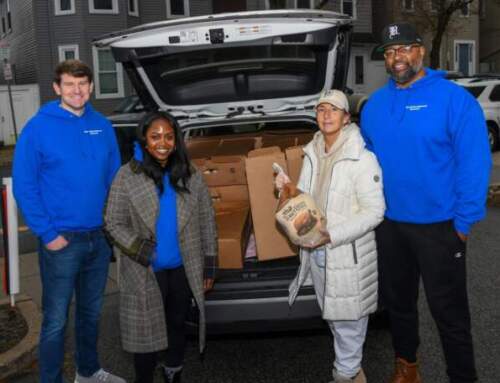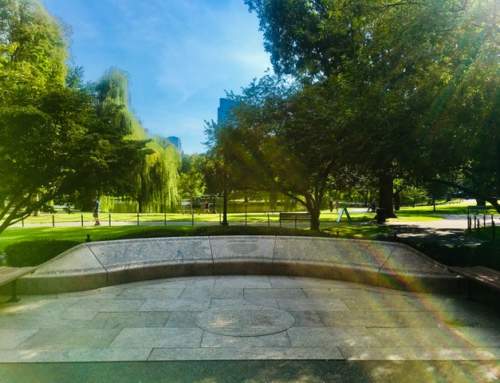By Richard Campbell
As the mayor of Boston has released his climate change goals for the future, a report in August this year from the Union of Concerned Scientists reveals that the state is seeing a serge in vehicular air pollution. Anyone who lives in South Boston and has witnessed the large increase in truck traffic to build the Seaport district would not be surprised by this report. The group stated in its report:
“DEP’ s (Department of Environmental Protection) updated emissions inventory showed a significant jump in emissions from transportation, from 29.7 MMT in 2015 to 31.7 MMT in 2016, an increase of over 6 percent. Transportation pollution is higher today than it has been at any point since 2008. It is the only sector where emissions are higher today than they were in 1990. ”
This is unfortunate given Mass Dot’s own statement of goal s :
“The Commonwealth’s Global Warming Solutions Act, signed into law in 2008, set the legally-enforceable goals of reducing GHG emissions by 25 percent below 1990 levels by 2020, and 80 percent below 1990 levels by 2050.”
Clearly those goals aren’t being achieved. Boston’s growth in residency and job numbers certainly plays a role in this jump, but the level of dirty air being spewed from truck traffic should not be discounted. According to another report from the same group, while heavy duty truck vehicles only account for 5% of all vehicles on the road, they account for more than 25% of the vehicle air pollution. Again, for anyone who has sat next to a truck in traffic on a hot day with the windows open, this should not come as a surprise.
While the MBTA has made inroads with somewhat cleaner operating buses using hybrid electric diesel fuel, it is easy to see the outdated standards for emission control on large commercial carriers needs immediate attention. With over 300 buses in the system slated for replacement, the decision is easy- go electric from this point forward. For budget conscious individuals should know that electric buses and hybrid trucks also cost less to operate. According to Massachusetts records, 40% of greenhouse gasses in the state come from vehicles.
Even if the state saw the wisdom of not spewing out more pollution via its public transportation system, freight is a major polluter in our city, and standards are not set or regulated that will change this problem. Hybrid tractor trailer trucks are long overdue, as are the replacement of outdated gas engine polluting dump trucks. In a study by the National Academy of sciences, pollution can be reduced by as much as 35% in freight transportation by the conversion to hybrid engines in the trucking industry. The Coca Cola Company has been a leader in this area introducing its first six hybrid electric vehicles. These trucks reduce emissions by 10 tons annually, and to boot, the vehicles are almost completely quiet. Their introduction was in cooperation with the department of energy during the Obama administration. Add to this the fact that the trucks are made in the United States by Navistar, and these eStar vehicles reveal a bright future. According to Coke’s website:
“The Los Angeles Times reported that The Coca- Col a Company’s new hybrid vehicles saved about 1 million gallons of diesel fuel last year, just as prices were topping $4 per gallon.”
The answer for the city of Boston is to follow this lead in regard to container and construction transport. Knowing that advocating more aggressive pollution and noise reduction methods is a difficult political position given the power of developers who rely upon the outdated truck f leets dropping heavy pollution in our city does not make such forward looking initiatives easy. Our position is that both the city and state should get on board as soon as possible in continually advancing technologies in the freight transportation industry as has been done in public transportation. With the voting public looking at the situation carefully in the coming gubernatorial race, reducing commercial large vehicle pollution should be on the table.






